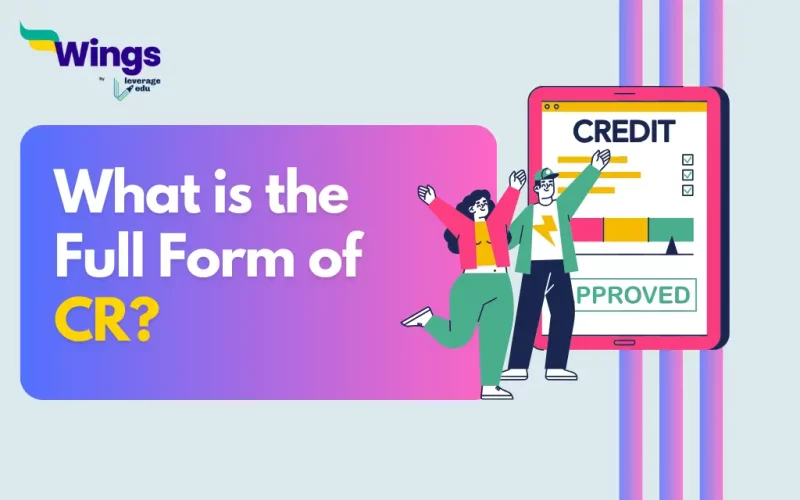CR Full Form is Credit. When someone sends money from their account to your account or when you earn credit from the bank is Credit (CR). In the world of financial accounting, the term “credit” can have a variety of meanings. For example, it may refer to a journal entry made on the right-hand side of an account that represents an increase in assets, records all income and revenues (in nominal accounts), what goes out (in real accounts), and is regarded as a giver (in personal accounts). Therefore, it may also refer to an agreement between a borrower and a lender regarding the loan amount that the borrower has taken out.
Types of Credit
Credit comes in many different kinds. Financial credit or bank loans, such as mortgages, home loans, auto loans, student loans, signature loans, business loans, and other credit lines, can be used to finance it. Moreover, there are additional credit options. For instance, the exchange of goods or services for delayed payment, the extension of credit by creditors or suppliers to the company based on the volume of raw materials the latter has acquired, etc.
Also Read: What is the Full Form of EMV?
5 C’s of Credit
Furthermore, the 5 C’s of Credit are:
- Character – A borrower’s character can be inferred from their credit history. Character is the most important aspect of credit, often known as credit history. Moreover, by demonstrating that they are a trustworthy borrower, the applicant can defend their character. In addition, lenders must assess an applicant’s character to protect themselves from defaulting clients.
- Capacity – The debt-to-income ratio of a loan application can be used to gauge its capacity. The capability of a borrower must be established for the lenders to be certain that he can pay back the loan.
- Capital- A borrower’s total assets and funds are represented by their capital. The amount of money a loan applicant has invested in his business can be used to calculate capital. The more they contribute, the more likely it is that they will be approved for the loan.
- Collateral – Additionally, collateral refers to the security that the borrower has given up in exchange for the loan that they have requested. If the borrower is unable to pay back the loan balance in the future, collateral security serves as a fallback.
- Conditions – The amount at stake, the true reason for asking for the loan, and continuous interest rates are all represented by conditions.
Also Read: What is the Full Form of CCB?
Merits of Credit
Additionally, the following are discussed as Credit benefits:
- Credit allows borrowers to purchase items even when they lack the cash. Moreover, it allows them to repay the loan amount over time, all at once or in EMIs (monthly instalments).
- With the credit option, borrowers can more easily purchase what they want without worrying about having enough money.
- Furthermore, the pressure of having to pay the entire sum up front is lessened. Thus, only the availability of credit choices from a banking or financial organisation. The option of paying monthly EMIs stretched over some time is available to borrowers who make a down payment.
Popular Full Forms
We hope this blog has helped you understand the CR Full Form and everything related to it. If you want to know more, find the 300+ full forms list on our blog. In the world of short forms, you can rely on the Leverage edu page to know about more full forms like this! Connect with us study abroad experts to achieve your international dream today!
 One app for all your study abroad needs
One app for all your study abroad needs













